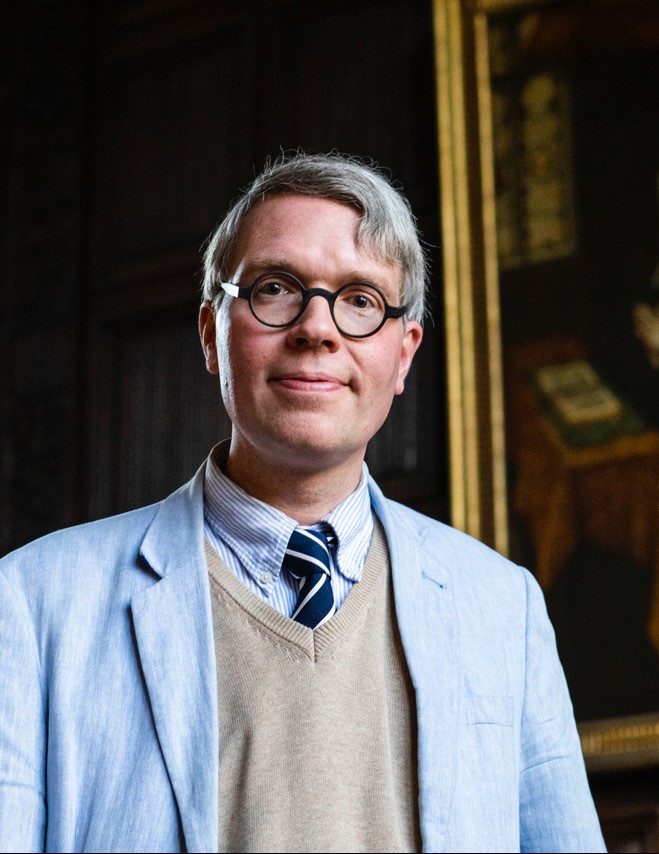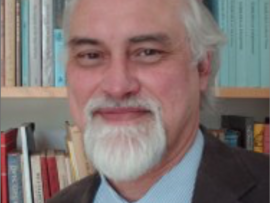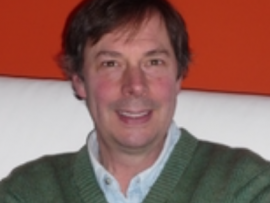Professor George van Kooten
George van Kooten is the Lady Margaret’s Professor of Divinity – the oldest endowed chair in the University of Cambridge, founded by Lady Margaret Beaufort in 1502.
As her epitaph in Westminster Abbey states, ‘Margaret of Richmond, mother of Henry VII, grandmother of Henry VIII … gave a salary … to two interpreters of Scripture, one at Oxford, the other at Cambridge’.
Professor van Kooten has a sustained interest in the Graeco-Roman context of the New Testament writings which were, after all, written in Greek. His simple primary research question is how, in the period before its adoption by the first Roman emperor in the fourth century, the Christian ‘Gospel’ (‘good news’) vibrates against the soundboard of the Graeco-Roman world.
He holds degrees from Leiden, Durham, and Oxford in the fields of New Testament studies and Judaism of the Graeco-Roman period. Previously, he was at the University of Groningen and Visiting Fellow at Clare Hall, University of Cambridge (2013-14) and the Georg-August-Universität Göttingen (2015) before he was elected to the Lady Margaret’s chair in 2018. Together with George Boys-Stones (Ancient Philosophy, Durham), he founded the Ancient Philosophy & Religion (APhR) series (Brill).
Select publications
- Bleeding Blood, Not Ichor – Christ the ‘Gottmensch’: A Comparison of the Johannine Incarnate God of Love with Homer’s Aphrodite, Plato’s Daimōn of Love, and Modern Discourse, in: Jan Dochhorn, Rainer Hirsch-Luipold, and Ilinca Tanaseanu-Döbler (eds.), Über Gott (Tübingen: Mohr Siebeck, 2022), 631-671
- Mind the (Ontological) Gap! The Collateral Loss of the Pauline-Stoic Creation ‘From God’ in the Joint Attack of the Arian-Nicene Creation ‘From Nothing’ on the Platonic Creation ‘From Disorderly Matter’, in: Geert Roskam, Gerd Van Riel, and Jos Verheyden (eds), From Protology to Eschatology and Back Again: Views on the Origin and the End of the Cosmos in Platonism and Christian Thought (Studies and Texts in Antiquity and Christianity; Tübingen: Mohr Siebeck, 2022), 161-231
- John’s Counter-Symposium: ‘The Continuation of Dialogue’ in Christianity—A Contrapuntal Reading of John’s Gospel and Plato’s Symposium, in: George van Kooten & Jacques van Ruiten (eds), Intolerance, Polemics, and Debate in Antiquity: Politico-Cultural, Philosophical, and Religious Forms of Critical Conversation (Leiden/Boston: Brill, 2019), 282-357
- Saint Paul and Philosophy: The Consonance of Ancient and Modern Thought, edited by Gert-Jan van der Heiden, George van Kooten & Antonio Cimino (Berlin/Boston: de Gruyter, 2017).
- Religio-Philosophical Discourses in the Mediterranean World: From Plato, through Jesus, to Late Antiquity (Ancient Philosophy & Religion 1), edited by Anders Klostergaard Petersen & George van Kooten (Leiden/Boston: Brill), 2017
- Matthew, the Parthians, and the Magi: A Contextualization of Matthew’s Gospel in Roman-Parthian Relations of the First Centuries BCE and CE, in: Peter Barthel and George van Kooten (eds), The Star of Bethlehem and the Magi: Interdisciplinary Perspectives from Experts on the Ancient Near East, the Greco-Roman World, and Modern Astronomy (Themes in Biblical Narrative 19; Leiden/Boston: Brill, 2015), chap. 20, 496-646
- Christianity in the Graeco-Roman World: Socio-Political, Philosophical, and Religious Interactions up to the Edict of Milan (CE 313), in: D. Jeffrey Bingham (ed.), The Routledge Companion to Early Christian Thought (London/New York: Routledge, 2010), chap. 1, 3-37
- Paul’s Anthropology in Context: The Image of God, Assimilation to God, and Tripartite Man in Ancient Judaism, Ancient Philosophy and Early Christianity (Wissenschaftliche Untersuchungen zum Neuen Testament 232; Tübingen: Mohr Siebeck, 2008)
Select awards
- Lecturer of the Manson Memorial Lecture at Manchester (2012), the inaugural Johannes Munck Lecture at Aarhus (2012), and the Ashby Lecture at Clare Hall (2018)



